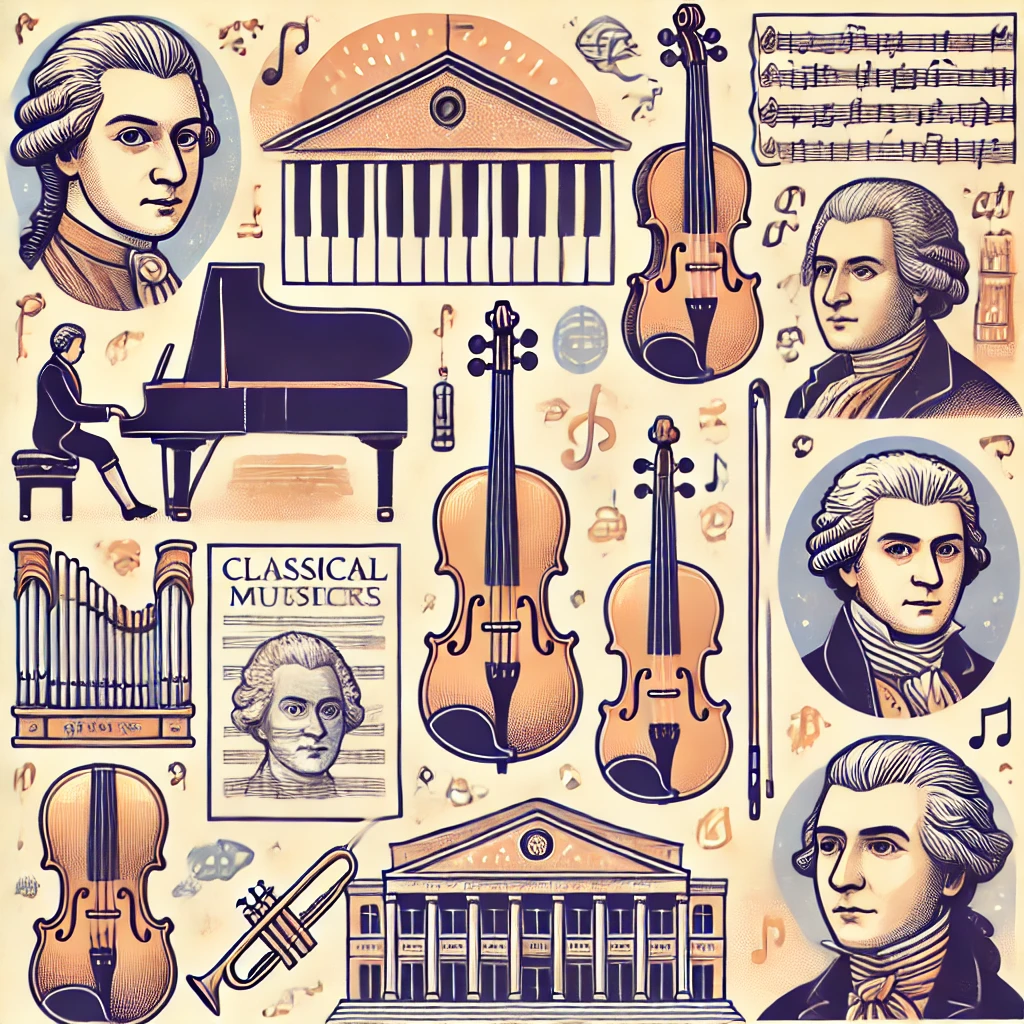Exploring the Rich History of Classical Music
Classical music has a profound and rich history that spans centuries. From the intricate compositions of the Baroque period to the emotive symphonies of the Romantic era, classical music has shaped the cultural and artistic landscape of the world. Here’s a journey through the history of classical music and its enduring legacy.
1. The Baroque Period (1600-1750)
The Baroque period was characterized by elaborate musical ornamentation, contrast, and expressiveness. Composers like Johann Sebastian Bach, George Frideric Handel, and Antonio Vivaldi created complex and textured compositions that remain influential.
Key Composers and Works:
- Johann Sebastian Bach: “Brandenburg Concertos,” “Toccata and Fugue in D minor”
- George Frideric Handel: “Messiah,” “Water Music”
- Antonio Vivaldi: “The Four Seasons”
2. The Classical Period (1730-1820)
The Classical period emphasized clarity, balance, and form. Composers such as Wolfgang Amadeus Mozart, Ludwig van Beethoven, and Franz Joseph Haydn focused on structured compositions and harmonic purity.
Key Composers and Works:
- Wolfgang Amadeus Mozart: “Eine kleine Nachtmusik,” “Requiem”
- Ludwig van Beethoven: “Symphony No. 5,” “Fur Elise”
- Franz Joseph Haydn: “The Creation,” “Symphony No. 94 (Surprise Symphony)”
3. The Romantic Period (1800-1910)
The Romantic period introduced more expressive and emotional compositions. Composers sought to evoke deep feelings and narratives through their music. Key figures include Franz Schubert, Richard Wagner, and Pyotr Ilyich Tchaikovsky.
Key Composers and Works:
- Franz Schubert: “Ave Maria,” “Symphony No. 8 (Unfinished Symphony)”
- Richard Wagner: “The Ring Cycle,” “Tristan und Isolde”
- Pyotr Ilyich Tchaikovsky: “Swan Lake,” “1812 Overture”
4. The Modern Period (20th Century and Beyond)
The Modern period saw experimentation with new forms, techniques, and styles. Composers like Igor Stravinsky, Arnold Schoenberg, and Dmitri Shostakovich pushed the boundaries of traditional classical music.
Key Composers and Works:
- Igor Stravinsky: “The Rite of Spring,” “Firebird Suite”
- Arnold Schoenberg: “Verklärte Nacht,” “Pierrot Lunaire”
- Dmitri Shostakovich: “Symphony No. 5,” “String Quartet No. 8”
5. The Influence of Classical Music Today
Classical music continues to influence modern music genres and is celebrated in concert halls around the world. Contemporary composers and musicians draw inspiration from the timeless works of classical masters.
Modern Impact:
- Classical themes are often incorporated into film scores and popular music.
- Orchestras and ensembles worldwide perform classical repertoires.
- Music education programs emphasize the importance of classical training.
6. Iconic Classical Music Venues
Experiencing classical music in historic venues adds to its allure. Renowned concert halls and opera houses provide a majestic backdrop for performances.
Notable Venues:
- Vienna State Opera, Austria
- Carnegie Hall, USA
- Royal Albert Hall, UK
7. The Role of Classical Music in Education
Classical music education plays a vital role in developing musical skills and appreciation. Learning classical music can enhance cognitive abilities, discipline, and emotional expression.
Educational Benefits:
- Develops fine motor skills and coordination.
- Enhances listening and analytical skills.
- Fosters creativity and emotional expression.
Conclusion
The rich history of classical music is a testament to its enduring appeal and significance. From the intricate compositions of the Baroque period to the emotive works of the Romantic era, classical music has left an indelible mark on the world. By exploring its history and appreciating its beauty, we can continue to celebrate and preserve this timeless art form.









